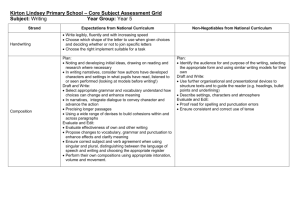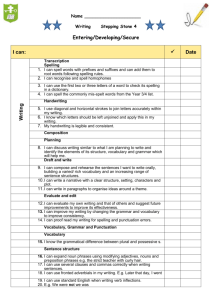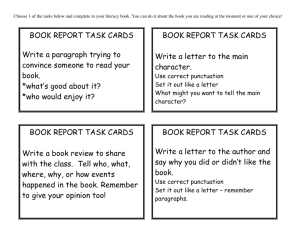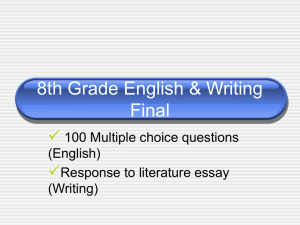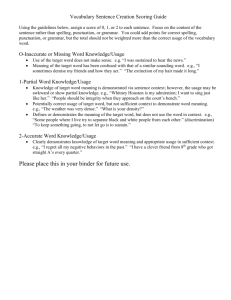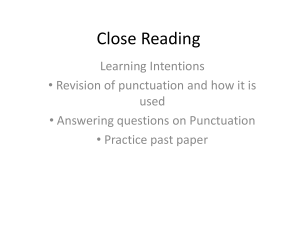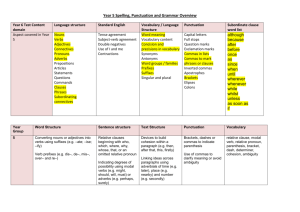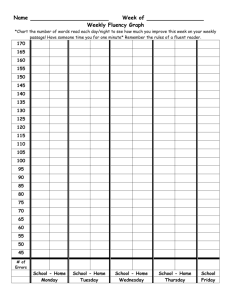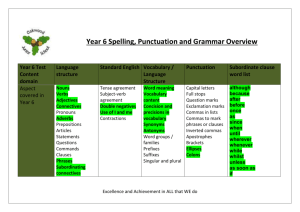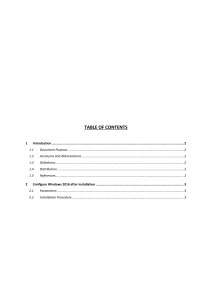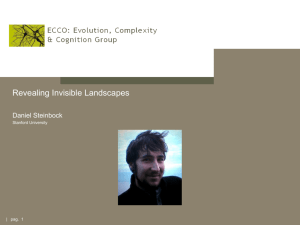Punctuation & Grammar in the New Curriculum
advertisement
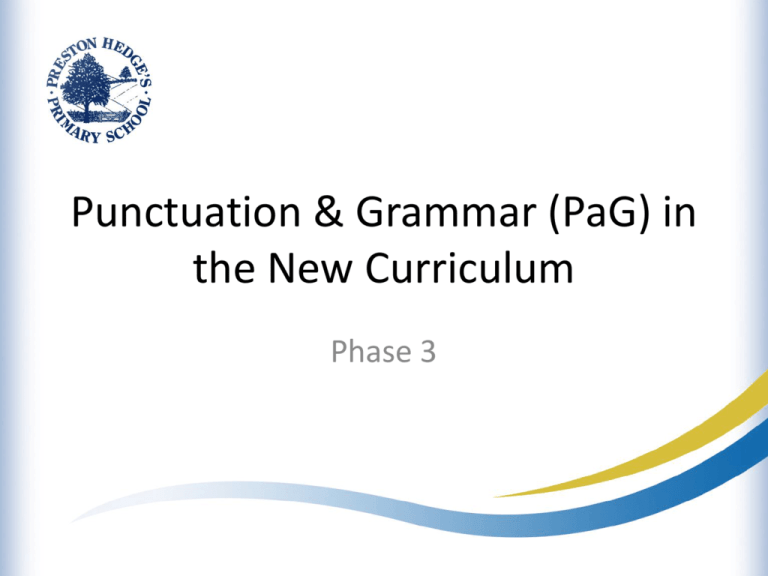
Punctuation & Grammar (PaG) in the New Curriculum Phase 3 Context • New harder curriculum • Woven into English sessions • PaG lesson a week • Use of PaG throughout wider curriculum writing Assessment • Aim – pupils to meet the age expected punctuation and grammar element • Termly test • Afternoon groups Example Year 4 Questions • Underline the adverbial phrase in this sentence: In the afternoon, the whole class went swimming. • Write one suffix which can be used with all of these words: appoint agree pay • Rewrite the following words as contractions with apostrophes: They have = We would = Example of Content in Year 4 • The difference between plural use of –s (girls) and possessive use of –s (the girl’s bag) • The correct use of plural possessive (the girls’ bags) • Punctuation of direct speech (punctuation prior to speech, inverted commas to open, initial capital letter, closing punctiation, inverted commas to close Example Year 5 Questions • Circle the two prepositions in this sentence: There are two good toyshops in my town and one of them is beside my house. • Insert the correct relative pronoun to fill the gap in this sentence: Scotland, __________ my mother was born, is our favourite place to go on holiday. • Underline the subordinate clause in this sentence While you were sleeping, I made you a lovely breakfast Example of Content in Year 5 • The use of relative pronouns • Bracket, dashes & commas for parenthesis • Commas within clauses to avoid ambiguity (A panda eats, shoots and leaves/ a panda eats shoots and leaves) Example Year 6 Questions • Rewrite this sentence using the passive voice Leila and Joshua tidied the whole classroom while the others went outside • Add dashes to this sentence On the farm which is near out school there are pigs, goats and cows. • Explain why a colon is used in this sentence. In the summer, we will visit a number of people in our family: aunts, uncles, cousins and grandparents. Example of Content in Year 6 • Synonyms and antonyms (Synonyms – two words that mean a similar thing e.g. happy & joyful Antonyms – opposite words e.g. happy/sad) • Active and passive verb forms (the dog ate the bone/ the bone was eaten by the dog) • Impersonal form (It’s time for bed as against the personal form, it’s time for you to go to bed) Ways to help your child… • Use the correct terminology when you discuss PaG with them • Pick them up on incorrect grammar use in speech • Websites to help: http://www.bbc.co.uk/Home/English http://resources.woodlandsjunior.kent.sch.uk/literacy/
